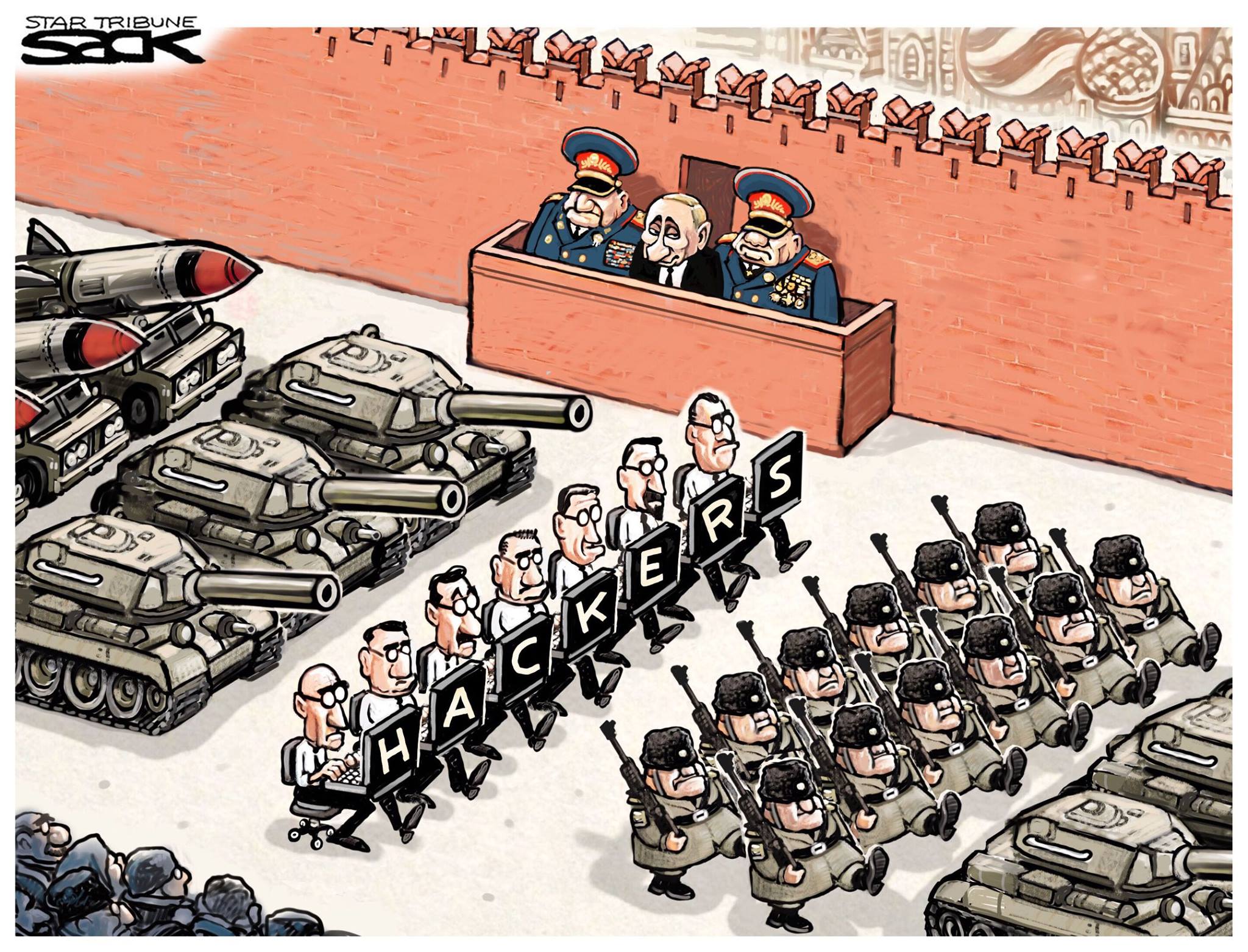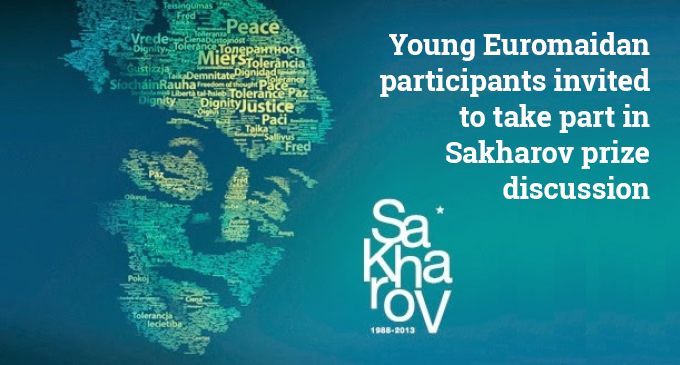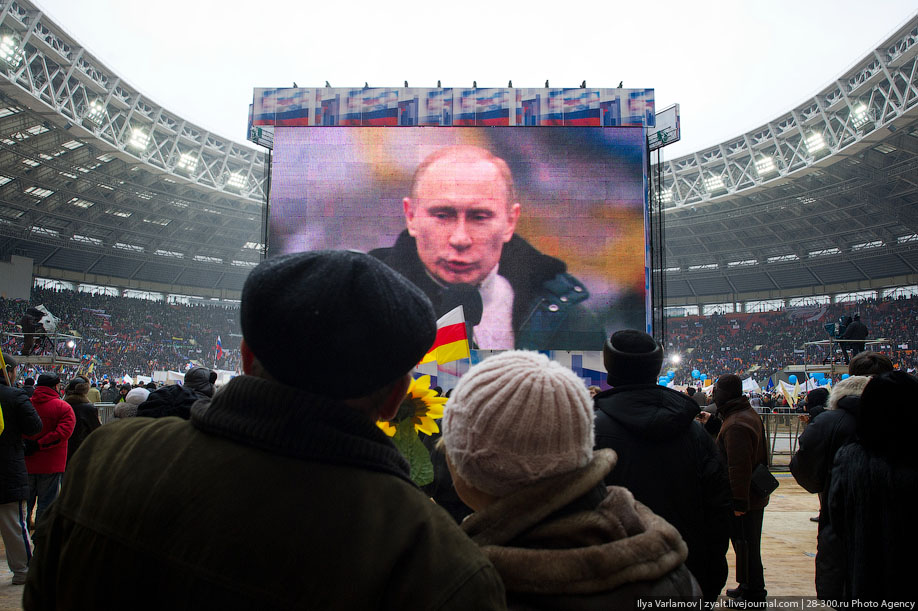Ever more people are calling for the containment of Putin’s Russia and some are even celebrating that the West has already been taking the necessary first steps in that direction, but such appeals and even more such celebrations fail to recognize that in today’s globalized world, containment won’t be easy – and almost certainly it won’t be enough.
The reasons for that unsettling conclusion reflect just how different the world is than it was when George Kennan first defined containment as a program intended to surround and isolate the Soviet Union and defend those countries threatened by Moscow’s policies until the internal contradictions of the communist system forced the USSR to retreat and to change.
Containment, as many now appear to have forgotten, was predicated on a large number of features of the international system and the state centered on Moscow that are no longer true; and because of these changes, containment will be difficult if not impossible to carry out – and in the face of Vladimir Putin’s aggressive policies, it won’t be enough to stop him.
In this article, I would like to point to five changes in Russia and five more in the international environment and especially in the US and Europe that make containment alone unlikely to work as many of its advocates assume and that means that the West needs to recognize that to counter Putin, it is going to have to do far more than “contain” him.
Among the changes in the state centered on Moscow between 1945 and now, five are especially important:
- Stalin’s Soviet Union was an ideological power committed to spreading its statist socialist system around the world; Putin’s Russian Federation is not: it is a quasi-capitalist authoritarian regime that seeks to cover its weakened position by promoting and then exploiting chaos and is not shy about cooperating with just about anyone.

Proud Kremlin hackers in parade on Moscow’s Red Square (Political cartoon by SACK / Star Tribute) - Stalin’s Soviet Union promoted its ideology via the press and radio; Putin’s Russia uses the Internet to jump over any barriers, including military opponents, and reach into other societies to disorder them.
- Stalin’s Soviet Union was incredibly cheap: it rarely threw money around to recruit agents or supporters relying instead on ideological commitments; Putin’s Russia uses its massive funds, earned from the super-high oil profits of a decade ago to corrupt businessmen, politicians, and media figures and to recruit spies and agents of influence.
- Stalin’s Soviet Union could expect only minimal cooperation from Western capitalists and none at all from Western human rights advocates; Putin’s Russia has split this essential Cold War alliance by dangling the possibility of great wealth to the capitalists and by marginalizing the rights activists by attacking them in the electronic media.
- Stalin’s Soviet Union was in many ways a conventional power: it projected power primarily by the use of its armed forces and thus could be countered by the mobilization of the armed forces of other countries; Putin’s Russia is less able to use overt military power preferring “hybrid” forms.
Among the changes in the international environment and especially in the United States and Europe over this period, five in particular make an effective containment policy alone extremely problematic:
- In 1945, the United States was fully mobilized and interested in projecting its military, economic, and political power around the world; now, many in the US want to withdraw from international responsibilities and turn inward, a shift that inevitably will call into question any proclamation of a containment policy.
- In 1945, Europe was prostrate and directly threatened by the Soviet Army. It was prepared to defer to the US to defend it against that existential threat. Today, Europe is divided on what to do about Russia both among countries and within them, with many counseling the need for cooperation with Russia regardless of what it does and with even more opposed to continued deference to an increasingly uncertain American leadership role.
- In 1945, the West by the very nature of its system viewed the development of the Internet as a private and independent thing. It thus did not work to exploit it against those, like Putin, who viewed it as a battleground and a weapon to be deployed against enemies.
- In 1945, there was a single ideological divide which the West accepted between communism on the one hand and democratic capitalism on the other. Now, many in the West believe that the main divide is between the Christian world and the Islamic one, a change that means many in the US and especially in Europe see Russia as being on the West’s side rather than on the other and are prepared to overlook what it does.
- In 1945, the West was intellectually self-confident. It had mobilized itself to defeat fascism and it viewed its own system as the best one. Now, ever more voices within Western countries have called democracy, freedom and liberal values into question and accepted the “what about-ism” of moral equivalency between the West and Russia, which Moscow has done as much as possible to promote.
To point to these ten changes – and in fact, there are many more – is not to say that the United States, Europe and the civilized world should not oppose the aggression and authoritarianism Putin represents. Reviving NATO and other alliances and including new members in them as soon as possible are necessary steps.
But it is to insist that those things will not be enough. Even if there were tens of thousands of NATO troops in the frontline states of Eastern Europe – and there ought to be at least that many — Putin could and would use his Internet and his corruption to reach over those forces and change the nature of these countries and their willingness to oppose him. He has demonstrated this again and again and again.
What then should the West do?
- First of all, it must acknowledge that as attractive as fighting the last war always is, containment which was part of that last conflict isn’t going to work in the new war if it is the only thing going. Obviously, rebuilding its defense capability must be part of the answer, but it can’t be the only one. Indeed, it wasn’t earlier either.
- Then, it must recover its own self-confidence. The strength of the West is not as many, including Putin, imagine in its GDP and its missiles: it is in the ideas on which the West has been built. Those ideas will ultimately like a blade of grass growing through concrete break it into pieces just as they did the USSR.
- And finally, it must join the battle that Putin has chosen to begin, exposing his use of the Internet to destroy the notions of truth and objectivity and of corruption to promote a sense of moral equivalency where it does not exist. And it must recognize that his regime has to be brought down and not just kept behind a line the West can no longer enforce.
To do all this will not be easy, but it is essential because what Putin is doing is just as serious an existential threat to the West as was Stalin’s. Indeed, the current Kremlin ruler’s actions may be even more dangerous. At the very least, they are currently far harder to counter. But we have no choice but to try.
Related:
- West fails to recognize nature and scope of Putin’s hybrid war against it, Eidman says
- Putin can’t ‘catch up and surpass West’ — he can only exploit divisions and spread chaos, Yakovenko says
- Kremlin trolls exposed: Russia’s information war against Ukraine
- Putin’s Russia well on its way to ‘criminal neo-totalitarianism’ with a ‘neo-terror’ and a ‘neo-GULAG,’ Pastukhov says
- Putin’s ‘secret weapon’ against the West – massive illegal cash hordes in foreign countries
- Putin’s ‘International of Lies’ based on money, not ideas, Yakovenko says
- Russian propaganda different and much more disturbing than its Soviet predecessor
- Post-truth world is not something new but a return to the past, Portnikov says
- A guide to Russian propaganda. Part 2: Whataboutism








